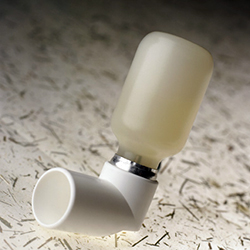WORLD ASTHMA DAY | Asthma Action Plan
World Asthma Day (2nd May 2017) is an annual event organised by the Global Initiative for Asthma (GINA), which works with health care professionals and groups around the world to reduce asthma prevalence, morbidity and mortality.
 People with asthma have sensitive airways in their lungs which can make breathing difficult when certain triggers cause the airways to narrow because:
People with asthma have sensitive airways in their lungs which can make breathing difficult when certain triggers cause the airways to narrow because:
- the lining of the airways become swollen and inflamed, producing sticky mucus
- the muscles around the airways tighten.
Asthma affects more than two million Australians. It cannot be cured but can be well controlled with medicines and lifestyle. This can allow you to live a normal and active life, free from symptoms of asthma including:
- wheezing or a whistling sound with breathing
- coughing
- breathlessness
- feeling tight in the chest
- finding it hard to breathe.
Symptoms can vary over time, and often occur at night, early in the morning, or during or just after activity. Children may also say they have a sore tummy, not eat or drink as much, or may get tired quickly.
The management of asthma aims to prevent asthma symptoms. Avoiding triggers and using asthma medicines correctly can help you manage your asthma and also prevent lung damage from asthma. Many triggers can cause asthma symptoms such as:
- allergens you breathe in (e.g. from house dust mites, pollens, moulds, animal hair)
- air pollution (e.g. cigarette smoke, dust)
- colds and flu
- cold air or a drop in air temperature
- exercise or physical activity (exercise-induced asthma)
- certain medicines (e.g. aspirin, anti-inflammatory pain relievers, beta-blockers, echinacea, royal jelly)
- strong smells and fumes (e.g. chemicals, paints, perfumes, cleaning agents)
- emotional upset, stress, anxiety
- some foods and food preservatives, flavourings and colourings.
Visit your doctor or health clinic regularly so they can assess your asthma symptoms, review your asthma management and medicines, and help you write an Asthma Action Plan for when your asthma gets worse.
You can control your asthma well by managing the factors that trigger it and by using asthma medicines correctly. Most asthma medicines are inhaled (breathed) into the lungs.
The main types of asthma medicines are called relievers and preventers. Relievers are short-term medicines that open airways quickly by relaxing the muscles around the airways. Preventers are long-acting medicines.
Asthma makes the lining of your airways inflamed (red and swollen). Preventers help to reduce the inflammation and reduce the amount of mucus in airways. They also make airways less sensitive to asthma triggers. They can prevent asthma symptoms and lung damage if used every day.
Relievers:
- help relieve asthma symptoms within a few minutes. Their effect can last for 4–6 hours (short-acting)
- should be used only ‘as needed’ for quick relief
- may be used before exercise, to prevent exercise-induced asthma.
Some inhalers contain a combination of a corticosteroid preventer and a long-acting reliever in the same inhaler device.
Preventers:
- must be used or taken every day, even when you don’t have any symptoms
- may take several weeks to improve symptoms
- will not relieve an asthma attack once it has started.
Some people need to use preventers for only a few weeks or months of the year, but other people need to use preventers all year round. If you do not get asthma symptoms and rarely use your reliever, ask your doctor to review your asthma medicines. Preventers should not be stopped unless advised by a doctor.
The aim of asthma treatment is to prevent symptoms. You should use your preventer or combination inhaler every day. Use your reliever only when needed. Always read and follow instructions carefully.
See a doctor or follow your Asthma Action Plan if you:
- need to use a reliever more than two days a week
- have daytime asthma symptoms more than two days a week
- use the whole reliever inhaler in less than a month
- have asthma symptoms during the night
- find physical activity hard because of asthma
- notice your peak flow readings getting worse
- have an asthma flare-up.
At Fresh Therapeutics our pharmacists check your inhaler technique and help you select a spacer if needed. We also provide information about asthma and asthma medicines with the Pharmaceutical Society of Australia’s Self Care Fact Cards Asthma and Asthma medicine. The Asthma Fact Card includes an Asthma First Aid Plan with information about what to do in the event of an acute asthma episode.
